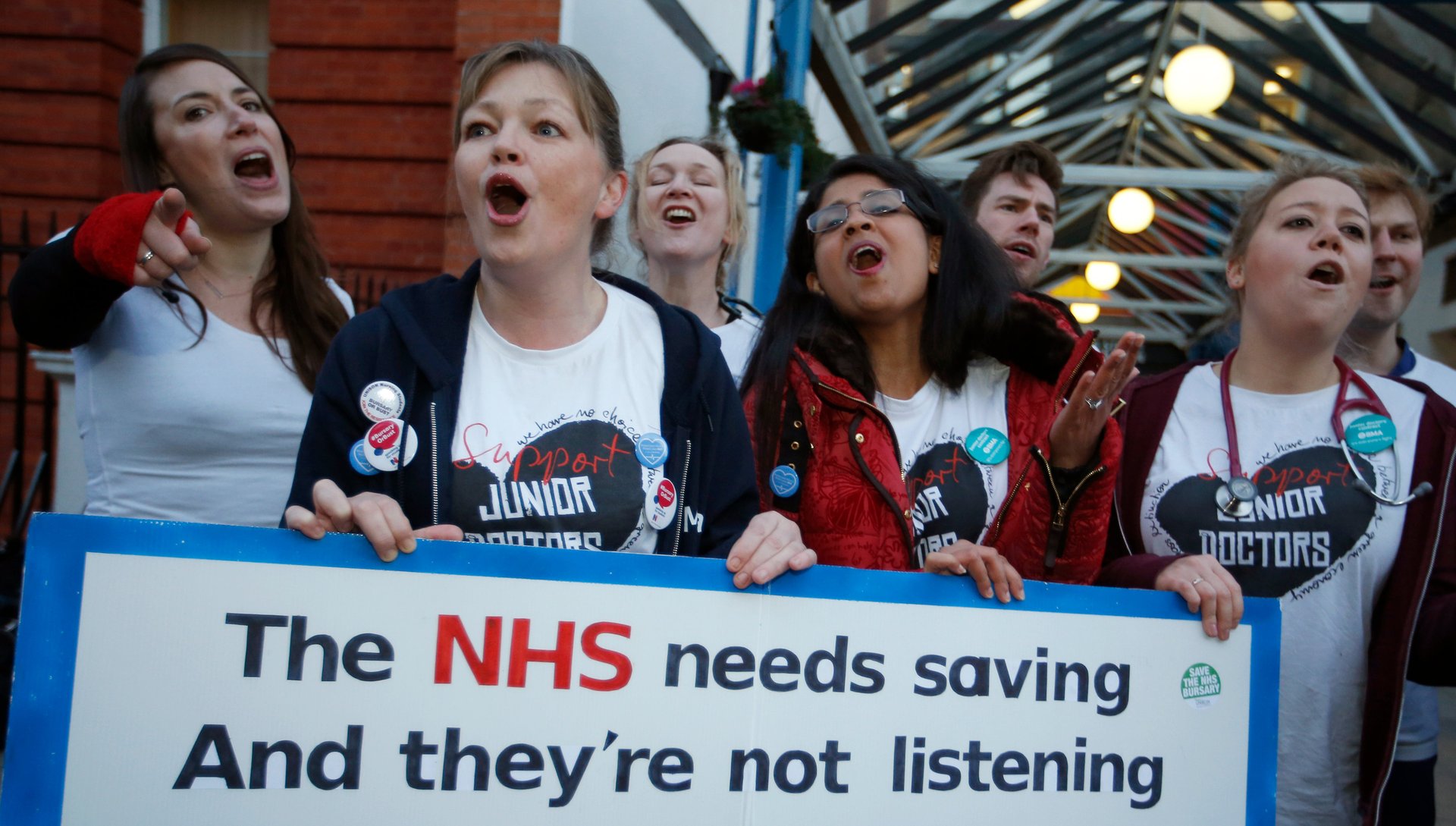Tens of thousands of doctors are going on strike in England today
For the first time in 40 years, junior doctors in England are going on strike over pay and working conditions.


For the first time in 40 years, junior doctors in England are going on strike over pay and working conditions.
Today’s action is in response to new contracts that are being proposed to junior doctors. They offer an 11% rise on basic pay, but at a price: The premium offered for working on weekends and late hours on weekdays is being cut.
The 37,000 members of the British Medical Association aren’t happy with the deal, and a resolution is not in sight, with future strikes planned for Jan. 26 and Feb. 11. Although emergency services are still working, some disruption is expected to hit hospitals across England today.
The government says it wants to improve the seven-day service offered by the country’s National Health Service (NHS) without increasing costs. This issue became a crucial point for health secretary Jeremy Hunt after studies showed that those admitted on the weekend have a higher mortality rate.
The NHS is considered one of the best healthcare systems in the world. Most of its services are offered for free to patients, and the bill is foot by the taxpayers. However, in a bid to bring expenses under control, in recent years David Cameron’s Conservative government has been slowly cutting the public health budget.
Opposition parties blamed Cameron and Hunt for the strike. “The blame must be laid at the door or this government for the way it has treated doctors and now seeks to smear them in the press,” Labour leader Jeremy Corbyn tweeted.
“Something has gone wrong here and the government need to settle this as soon as possible,” Nick Clegg, the former Liberal Democrat leader, said.